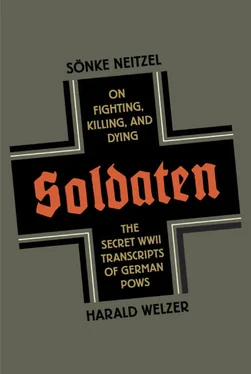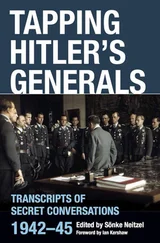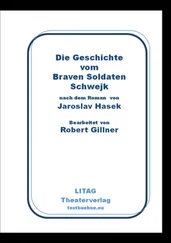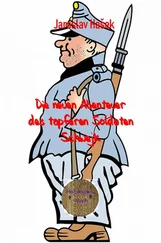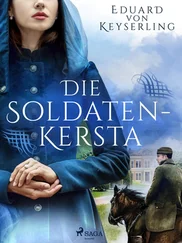Even the pre-Nazi Reichswehr believed that partisans had to be combated with extreme force. A potential wildfire, so the logic ran, needed to be extinguished at the first spark. And although this approach proved ineffective, in some regions the German struggle to put down resistance movements led to an unprecedented spiral of violence. Before long the killing of hostages and innocent victims, and the razing of whole villages, was part of everyday routine. This did not differ dramatically from practices maintained in the Napoleonic Wars or World War I. What was new were the dimensions. The rigor with which German occupiers pursued alleged partisans was one reason that 60 percent of the casualties in World War II, an unprecedented proportion, were civilians. Distinctions between military combatants as legitimate targets of attack and civilian noncombatants, who should have been protected, basically dissolved.
The surveillance protocols offer a number of paradigm examples of how Wehrmacht soldiers viewed the war against partisans, and they show that German military leaders and their troops basically saw eye-to-eye. Drastic measures were justified by psychological deterrence:
GERICKE: In RUSSIA last year a small German detachment was sent to a village on some job or other. The village was in the area occupied by the Germans. The detachment was ambushed in the village and every man was killed. As a result a strafing party was sent out. There were fifty men in the village; forty-nine of them were shot and the fiftieth was hounded through the neighbourhood so that he should spread abroad what happens to the populations if a German soldier is attacked. {141} 141 SRA 3444, 28 December 1942, TNA, WO 208/4128.
Franz Kneipp and Eberhard Kehrle also related how German occupiers answered attacks with brutal forms of violence. They saw nothing unethical about this. On the contrary, they both felt that partisans deserved to die horrible deaths:
KNEIPP: There was a lot going on there. Oberst Hoppe…
KEHRLE: Hoppe is well known. He has a Knight’s Cross?
KNEIPP: Yes, he took SCHLÜSSELBERG. He issued the commands. “As you to us, we to you,” he said. They were supposed to confess who had hung Germans to death. Just a hint, and everything would be all right. None of them said even that they didn’t know anything. Then it was, “All men, exit to the left.” They were driven into the woods, and you heard brr, brr. {142} 142 Harry Hoppe (11 February 1894–23 August 1969), commander of Infantry Regiment 424 of the 126th Infantry Division, received the Knight’s Cross on 12 September 1941 for the conquest of Schlüsselburg.
KEHRLE: In the Caucasus, with the 1. GD [Mountain Division], when one of us had been killed, no lieutenant needed to give any orders. It was: pistols drawn, and women, children, everything they saw…
KNEIPP: With us, a group of partisans attacked a transport of wounded soldiers and killed them all. A half-an-hour later they were caught, near NOVGOROD. They were thrown in a sandpit, and it started from all sides with MGs and pistols.
KEHRLE: They should be killed slowly, not shot. The Cossacks were great at fighting partisans. I saw that in the Southern Division. {143} 143 Room Conversation, Kneipp–Kehrle, 23 October 1944, NARA, RG 165, Entry 179, Box 498. Franz Kneipp was apparently deployed in 1941 with the SS Police Division. Eberhard Kerle was a radio operator. We know little more about him.
Interestingly, Kehrle and Kneipp had diametrically opposed attitudes toward the military in general. Kehrle found the primitive life of the army “idiocy” and “absolute shit,” while for Kneipp it was a form of “education.” {144} 144 Ibid.
Yet despite that, and the inherent differences between a radio operator and an SS infantryman, they completely agreed on the methods needed to deal with partisan warfare.
The practical rules of warfare often established norms deviating from international law. That is why the POWs spoke of war crimes in matter-of-fact terms and rarely showed signs of outrage. What offended them most was the behavior of occupied local populaces. The soldiers thought it was essential to take action against any and every form of noncooperation. Such attitudes prevailed as early as October 1940, as illustrated in this exchange:
URBICH: But there one sees how the Gestapo takes up every little thing. Especially how it is working in POLAND now.
HARRER*: In NORWAY too. In NORWAY they have had a lot of work recently.
STEINHAUSER: Really?
HARRER: Yes, someone told me… (int.)
URBICH: Killed a number of Norwegian officers…
HARRER: I’m certain that even when we have actually occupied ENGLAND we shall not be able to walk about (unmolested) as in FRANCE.
STEINHAUSER: I don’t think so. There will be the first attempts. But when every tenth man in a town is executed it will soon stop. That is no problem at all, ADOLF will use all means to nip any franc-tireur activity in the bud. Do you know how they work in POLAND? If only one shot is fired there is trouble. Then the procedure is as follows: From whatever town or district of a town shots have been fired all the men are called out. For every shot fired during the following night, in fact during the following period, one man is executed.
HARRER: Splendid! {145} 145 SRA 818, 25 October 1940, TNA, WO 208/4120.
Reflections about the rectitude or proportionality of such forms of extreme violence against civilian populations do not occur in the POWs’ conversations. The soldiers do not think to question their behavior. Their task is to take care of the necessities: “work,” “extreme measures,” and “retribution.” They focus on achieving results, not finding reasons.
Stories about war crimes were part of soldiers’ everyday communication with one another in the same way that tales of shooting down planes and sinking ships were. In and of themselves, atrocities were nothing unusual. Only unusual actions or individual forms of behavior merited telling. One example focused on the mass executions carried out after SS leader Reinhard Heydrich was assassinated in Poland:
KAMMBERGER: In Poland the soldiers were excused from duty so they could attend the executions, which were public. After the HEYDRICH affair twenty-five to fifty people were executed daily. They stood on a stool and had to put their heads through a noose, and the one behind had to kick the stool away, with the words: “You don’t need that stool, brother.” {146} 146 SRA 4758, 24 December 1943, TNA, WO 208/4132.
The appeal of this story for the soldier in question rested not in the killings themselves, but in how they were staged. Soldiers were given time off so they could witness the spectacles, and the executions were accompanied by a ritual of humiliation designed especially for the occasion.
Together with tales revolving around unusual acts of violence, stories concerning individuals who distinguished themselves in some way or another also made for good telling. One example is an anecdote related by Private First Class Müller:
MÜLLER: In a village in RUSSIA there were partisans, and we obviously had to raze the village to the ground, without considering the losses. We had one man named BROSICKE, who came from BERLIN; if he saw anyone in the village, he took him behind the house and shot him, and with it all the fellow was only nineteen and a half or twenty years old. The order was given that every tenth man in the village was to be shot. “To hell with that! Every tenth man. It is perfectly obvious,” said the fellow, “that the whole village must be wiped out.” We filled beer bottles with petrol and put them on the table and, as we were going out, we just threw hand grenades behind it. Immediately everything was burning merrily—all roofs were thatched. The women and children and everyone were shot down; only a few of them were partisans. I never took part in the shooting unless I was sure that they were proved to be partisans; but there were a lot of fellows who took a delight in it. {147} 147 SRA 5643, 13 October 1944, TNA, WO 208/4135.
Читать дальше
